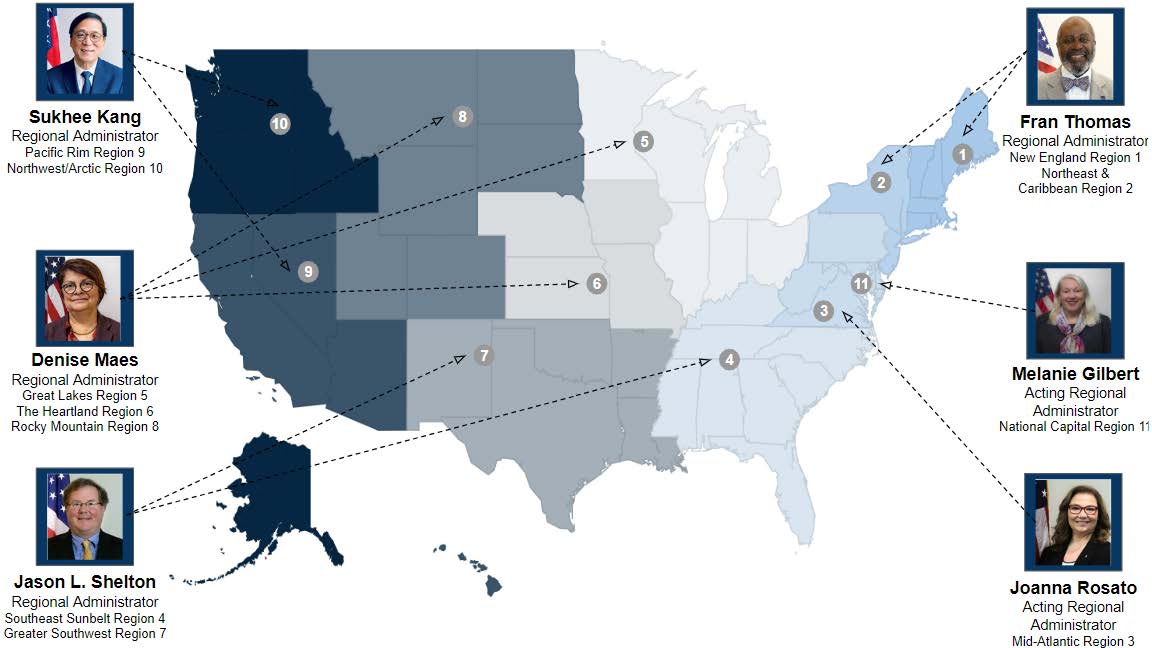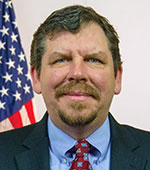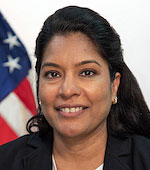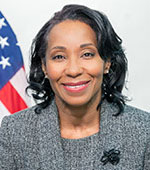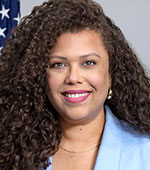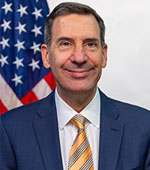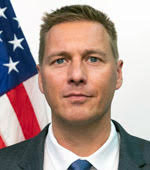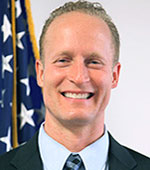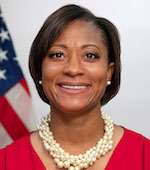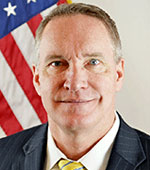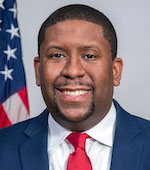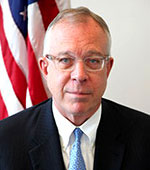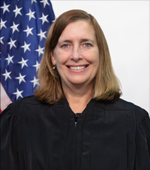Organization
Our agency comprises the Federal Acquisition Service, the Public Buildings Service, 12 staff offices, and two independent offices.
GSA serves its 60+ federal customers and the public through its headquarters in Washington, D.C., 11 regional offices, and employees nationwide.
The Administrator of General Services Administration oversees the entire agency, leading a staff of about 12,000 GSA employees nationwide, overseeing approximately 364 million square feet of real property, approximately $102 billion in annual contracts, and over 231,000 leased vehicles. Working with the GSA team in the central office and the regions, the administrator sets the priorities for the agency and ensures that GSA employees have what they need to help other federal agencies accomplish their missions.

Robin Carnahan
Administrator
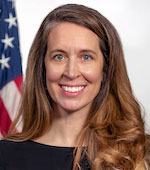
Katy Kale
Deputy Administrator
The Deputy Administrator supports the full operations of the agency, ensuring that the agency’s mission can be accomplished effectively and efficiently. The Deputy Administrator leads on all critical mission support activities, from information technology to emergency response to human resources management.
The Chief of Staff uses experience in legislative affairs, strategic communications, public policy, leadership, and management as he works with GSA leadership to support the fulfillment of the agency’s mission.
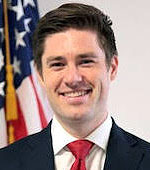
Brett Prather
Chief of Staff
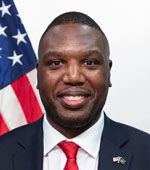
Trevor D. Jones
White House Liaison
The White House Liaison coordinates between the Executive Office of the President, other federal partners, and GSA. The liaison also manages the appointment process for GSA leadership positions and works with other federal agencies to support the administration’s key initiatives.
Regional map
Federal Acquisition Service
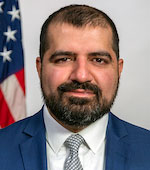
Sonny Hashmi
Commissioner
The Commissioner of FAS oversees the delivery of more than $102 billion of products, services, and solutions that enable federal agencies to accomplish their missions while saving taxpayer dollars efficiently.
FAS operates at the core of the GSA mission: Leverage the Federal Government’s buying power to acquire the best value for taxpayers and customers. To support GSA and accomplish our mission, FAS uses innovative techniques and leverages government-wide buying power, acquisition expertise, and electronic tools to successfully deliver new and existing services, products, and solutions. Additionally, FAS is undergoing a realignment to modernize and streamline the organization in a way that removes roadblocks, simplifies processes, and makes it easier for our customers and industry to work with GSA while simultaneously empowering employees. FAS’ new organizational model replaces its legacy regional structures with a centralized reporting model.
Six category offices comprise the business-generating components of FAS. These categories offer many services, products, and solutions and support a broad customer base.
FAS manages six main business areas:
- Information technology category.
- Assisted acquisition services.
- General supplies and services.
- Travel, transportation, and logistics.
- Professional services and human capital.
- Technology Transformation Services.
FAS receives its funding primarily through the Acquisition Services Fund from reimbursable revenue generated by the above categories rather than appropriations received from Congress. A few FAS activities are funded by the Federal Citizen Services Fund which receives appropriations annually.
In FY 2023, FAS supplied approximately $102 billion in IT products, services, and solutions; telecommunications services; assisted acquisition services; travel and transportation management solutions; motor vehicles and fleet services; and charge card services, and saved the Federal Government a total of $5.5 billion. FAS has over 231,000 leased motor vehicles in its fleet, and provides personal property disposal services for the reuse of over $2.3 billion in surplus personal property annually.
Public Buildings Service
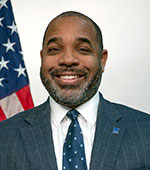
Elliot Doomes
Commissioner
The Commissioner of PBS oversees a national real estate portfolio of approximately 364 million square feet of government-owned and leased space across the U.S. and the territories.
The PBS Commissioner leads a team of over 5,600 employees that perform asset management, procurement, design, construction, leasing, building management and disposition services on behalf of other Federal agencies.
As the landlord for the civilian Federal Government, PBS delivers and maintains safe, smart, and sustainable workspaces to enable Federal employees to best serve the American people. PBS’s portfolio consists of approximately 1,700 federally owned assets (190 million rentable square feet) and over 6,500 leased assets (170 million rentable square feet). PBS also presides over 500 historic properties in the portfolio.
PBS is funded primarily through the Federal Buildings Fund, with rent paid by occupant agencies. PBS constantly works to streamline operations, modernize and optimize the real estate portfolio, and create new workplace offerings to ensure that employees of more than 50 Federal agencies have high-quality work environments.
PBS is investing approximately $7 billion from the Bipartisan Infrastructure Law and Inflation Reduction Act into Federal assets. These investments are enhancing the safety and security of our borders and making Federal buildings more sustainable, higher performing, and more cost-efficient through installing next generation technologies and low embodied carbon materials.
Staff offices
The GSA Staff Offices receive funds through the Working Capital Fund or annual appropriations. They support the enterprise and ensure GSA’s preparedness to meet its customers’ needs on a day-to-day basis and in crises.
Office of Administrative Services
Bob Stafford
Chief Administrative Services Officer
OAS oversees internal administrative policies, manages executive correspondence, maintains the agency’s internal directives, sets internal travel and purchase charge card policies, and develops workplace initiatives.
Office of the Chief Financial Officer
Nimisha Agarwal
Chief Financial Officer
OCFO provides the full suite of financial services to GSA - including budget formulation and execution. Analytics and financial data management, financial operations, reporting, financial controls, and certification of funds - to ensure the proper management of the agency’s financial resources.
Office of Civil Rights
Aluanda Drain
Associate Administrator
OCR administers five programs related to federal civil rights laws and regulations: Equal Employment Opportunity, Affirmative Employment, Nondiscrimination in Federally Conducted Programs and Activities, Environmental Justice, and Nondiscrimination in Federally Assisted Programs and Activities. OCR also administers the appeals process for administrative grievances that our employees file.
Office of Congressional and Intergovernmental Affairs
Gianella Rivera
Associate Administrator
OCIA serves as advisor to the administrator and GSA leadership by supervising and maintaining agency liaison with all members of Congress and congressional committees. The office also liaises with state, local and tribal government officials and their official national organizations.
Office of Customer Experience
Camille Tucker
Acting Chief Customer Officer
OCE is integral to how our agency does business. Customer-centric thinking improves the experience for customers by aligning our agency operations to customer needs and influences how the American public interacts with the federal government.
Office of the General Counsel
Alex DeMots
General Counsel
The General Counsel is the chief legal officer for our agency. OGC provides legal advice and representation to GSA officials while ensuring the implementation of our statutory responsibilities. OGC also manages our Freedom of Information Act and ethics programs and handles all GSA-wide claims under the Federal Tort Claims Act.
Office of GSA IT
David A. Shive
Chief Information Officer
GSA IT provides the agency’s staff with ever-evolving technology to improve capabilities, productivity, mobility, agility, and cost savings. GSA IT solutions include mission-supporting applications, laptops, mobile devices, collaborative cloud-based software, training, and technical support.
Office of Government-wide Policy
Krystal Brumfield
Associate Administrator and Chief Acquisition Officer
OGP uses policies, data, and strategy to drive efficiency and management excellence across the federal government for crucial administrative areas. These areas include travel and transportation, acquisition, fleet management, information technology modernization, personal property management and disposal, and real estate management.
Office of Human Resources Management
Jeffrey Lau
Acting Chief Human Capital Officer
OHRM delivers comprehensive human resources services and solutions to our employees. OHRM works with our service and staff offices to attract, motivate, develop, retain, and reward employees to maintain and enhance a mission-ready workforce.
Office of Mission Assurance
Robert J. Carter
Associate Administrator
OMA provides agency-wide leadership and coordination for emergency management and security policy. These policies include occupant emergency planning, response and recovery, personal identity verification, physical security, personnel security, and suitability activities.
Office of Small and Disadvantaged Business Utilization
Exodie C. Roe, III
Associate Administrator
OSDBU partners with our mission-delivery and mission-support offices to meet and exceed statutory small and socio-economic business goals. To achieve this, OSDBU promotes access to our nationwide procurement opportunities and provides training to the acquisition workforce and to small and disadvantaged businesses.
Office of Strategic Communication
Channing Grate
Associate Administrator
OSC helps the media and the public understand the work performed by our agency as we assist other agencies and simplifies access to government information and services.
Independent offices
Office of the Inspector General
Robert C. Erickson
Acting Inspector General
OIG is an independent unit established by law. It is responsible for promoting economy, efficiency, and effectiveness, and detecting and preventing fraud, waste, and mismanagement in GSA’s programs and operations. OIG’s mission is to help us effectively carry out our responsibilities and to protect the public interest by bringing about positive changes in our programs and operations, performance, accountability, and integrity.
Civilian Board of Contract Appeals
Erica S. Beardsley
Chair
CBCA is an independent tribunal also established by law within our agency. The CBCA presides over various disputes involving federal executive branch agencies. Its primary responsibility is to resolve contract disputes between government contractors and agencies under the Contract Disputes Act.

 U.S. General Services Administration
U.S. General Services Administration





